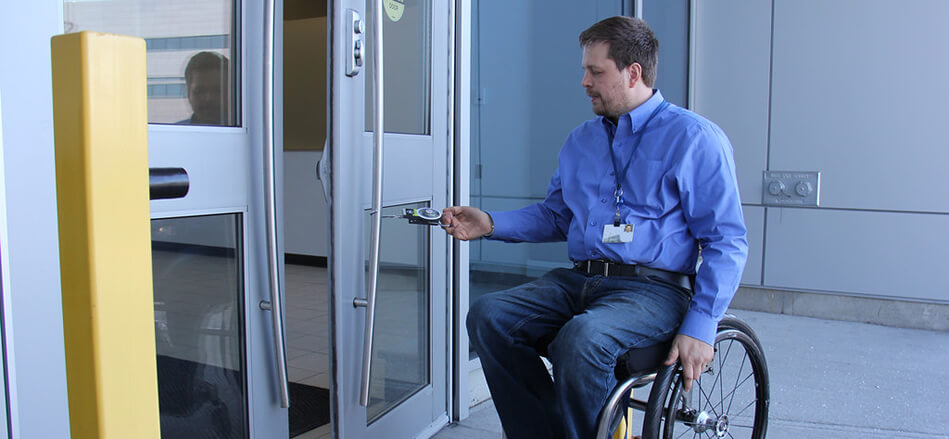Social Security Disability – Common Disabling Conditions

The Social Security Administration provides monthly payments to people with eligible disabilities that prevent them from working for at least 12 months, or if their condition is expected to result in death. Medical conditions causing disability can be physical or mental.
There are a wide variety of medical conditions defined by Social Security that can be eligible for benefits if the applicant provides medical evidence. Developing a disability is more common than most people think. Before reaching retirement age, a 20 year old worker has a 1-in-4 chance of becoming disabled.
What Are the Most Common Disabling Conditions?
A report by the Social Security Administration in 2018 detailed the reasons why recipients received Social Security Disability Insurance (SSDI). Below are the ten most common reasons for receiving disability insurance.
1. Musculoskeletal Disorders
It is not surprising that this category of medical conditions is the most common for Social Security disability benefits, claimed by 29% of beneficiaries. A healthy musculoskeletal system allows a person to move easily and to perform tasks while sitting, standing, or walking. A great number of jobs would be impossible to perform with a musculoskeletal disability, because of limited range of movement, the inability to use one or more limbs, and pain.
1. Musculoskeletal system disorders include:
- Fractures caused by an underlying disease
- Amputation
- Sciatica
- Lumbar spinal stenosis (narrowing of the spine)
- Surgery for a fused weight bearing joint
- Abnormality of a major joint(s) in any extremity
- Soft tissue injury or abnormality under continuing surgical management
- Complex or non-healing fracture of the femur (upper leg), tibia (lower leg), pelvis (hip) or talocrural bones (ankle)
- Non-healing or complex fracture of the arm or hand </li
2. Mood Disorders
Mood disorders can be a significant impediment to working, and interfere with an employee’s ability to manage basic tasks, concentrate, maintain relationships with co-workers, and represent a business to customers. These disorders affected 12.9% of the recipients of Social Security Disability Insurance.
- Depression
- Bipolar disorder
- Seasonal affective disorder
- Dysthymia
Mood disorders, such as depression, can also be related to another illness. A person with another disabling condition like cancer can also develop a mood disorder as a result.
3. Nervous System and Sense Organ Disorders
The nervous system is the “command center” for your entire body. It regulates active processes like moving and thinking, and how the senses perceive sights, smells and sounds. Actions that are performed automatically, like breathing, blinking, and digesting, are also controlled by the nervous system.
Disorders of the nervous system can affect a person’s ability to work in a multitude of ways. They can compromise vision, hearing, and the ability to deliberately move the body. Conditions of the nervous system and sensory organ disorders include:
- Epilepsy
- Multiple sclerosis
- Huntington’s disease
- Spinal cord injuries
Diseases and injuries can also cause nerve damage. For example, diabetes, lupus, rheumatoid arthritis, and stroke.
4. Intellectual Disabilities
Intellectual disabilities affect a person’s ability to understand, concentrate, learn and remember new things in their everyday life.
According to the Special Olympics, only 44% of adults with intellectual disabilities (ID) are in the labor force, compared with 83% of non-disabled adults. Intellectual disabilities can be congenital, or develop later in life due to brain injuries. Although many adults with ID do obtain steady employment, 8.6% of adults receiving Social Security Disability Insurance do so because of intellectual disabilities.
Some examples of intellectual disabilities are:
- Down Syndrome
- Fragile X Syndrome
- Autism
- Fetal Alcohol Syndrome
- Prader-Willi
- Phenylketonuria (PKU)
5. Circulatory System
The circulatory system is also known as the cardiovascular system, and consists of arteries and veins that circulate blood to and from the heart and around the body. Heart disease is a major medical issue for Americans. In fact, someone has a heart attack every 40 seconds in the United States. In order to manage the symptoms of heart disease, some workers will have to leave their jobs for an extended period of time. Conditions that affect the circulatory system include:
- Chronic heart failure
- Ischemic heart disease
- Recurrent arrhythmias
- Congenital heart disease
- Heart transplants
- Aneurysm of the aorta or other major arteries
Seven percent of adults on disability suffer from circulatory disorders.
6. Schizophrenic and Other Psychotic Disorders
Psychotic disorders are very serious and have a dramatic impact on an individual’s ability to navigate their everyday life. They may experience symptoms like delusions or paranoia, and have extreme difficulty communicating and navigating daily tasks. Around 5% of recipients of Social Security Disability Insurance do so because of psychotic disorders, including:
- • Schizophrenia
- • Schizoaffective disorder (symptoms of schizophrenia and mood disorder such as depression or bipolar disorder)
- • Delusional disorder
- • Shared psychotic disorder
7. Other Mental Disorders
The SSA includes other mental disorders outside of mood disorders and psychotic disorders as conditions eligible for disability payments. Other mental disorders account for 4% of adults on disability Examples of other mental disorders are:
- Obsessive-compulsive disorder
- Somatic symptom disorder
- Personality and impulse-control disorders
- Autism
- Eating disorders
8. Injuries
Car and motorcycle crashes, accidents at work, falls in the home, and participating in sports are common ways that people are injured in the United States. Some people do not recover sufficiently from their injuries to return to work. Serious injuries can result in paralysis, limited mobility, or chronic pain that require disability payments. In 2018, 3.5% of Social Security Disability payments were for adults with disabling injuries.
9. Organic Mental Disorders
Organic mental disorders are different from psychiatric disorders. They are caused by conditions in the brain that may originate from diseases, injuries, or congenital defects. The sufferer may experience confusion, memory loss and other loss of brain function that would inhibit their ability to work. They include conditions such as:
- Dementia
- Amnesia
- Alzheimer’s disease
Organic mental disorders account for 3.3% of Social Security disability income.
10. Neoplasms
When cells in the body divide more quickly than normal, they create abnormal growths called neoplasms. Neoplasms form tumors within the body, and may be benign, but can also become cancerous. Cancer can spread to other areas of the body and cause serious illness requiring extensive treatment including chemotherapy and radiation, and/or surgery. A person with neoplasms may need to leave their job to go through these treatments, which have major side effects and can be very debilitating. Neoplasms affected 2.5% of Social Security Disability recipients in 2018.
Am I Eligible for Disability Payments?
If you are unable to work due to a medical condition not described on this list, you and your family could still be eligible for Social Security disability payments. Understanding the process can be confusing, and if you make any errors, your claim can be denied. To get all the benefits you are entitled to, you should always consult a legal expert. Our highly experienced team is here to help you navigate the system and secure benefits for you and your family. online today for a free initial consultation.
If you were recently involved in a car accident in Des Moines and need legal representation, a Des Moines car accident attorney can help. They have the experience and knowledge to handle your case and fight for your rights.








